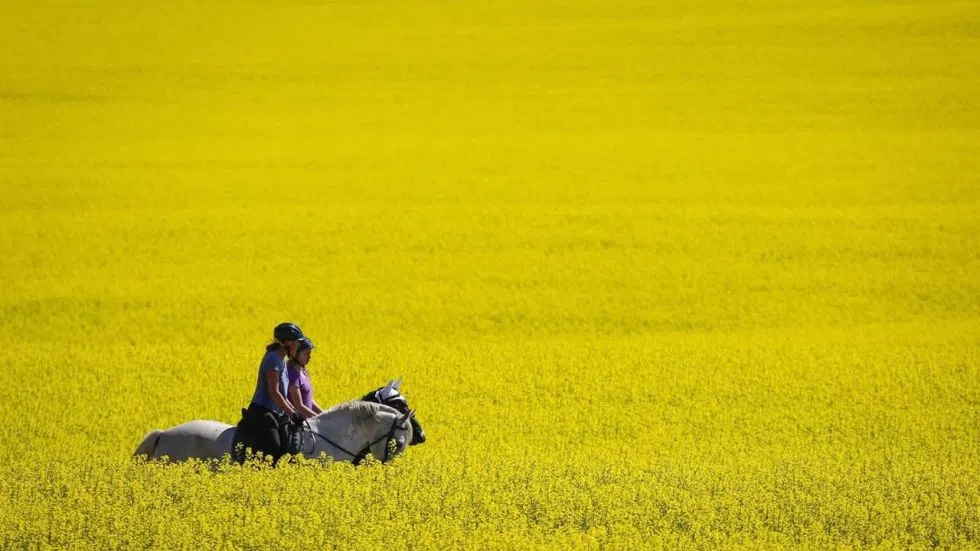
Province to use $10 Million for farm energy efficiencies and reduce carbon tax impact
EDMONTON – Alberta’s agriculture minister has announced the province will take advantage of the Climate Change and Emissions Management Fund to help the farm sector reduce greenhouse gas emissions.
Ever since 2007, large industrial C02 emitters which exceeded reduction targets have been paying into the fund.
Agriculture Minister Oneil Carlier was on a farm outside of Edmonton on Monday, to confirm $10 Million will be used from the Fund for agricultural programs
“In my discussions with agricultural producers, I have heard the importance of supporting greenhouses, dairy and livestock sectors in the transition to a lower carbon future. That’s why, in addition to our farm fuel rebate, we are putting additional funding in programs that will help producers become more efficient and reduce consumption, emissions and costs.”


